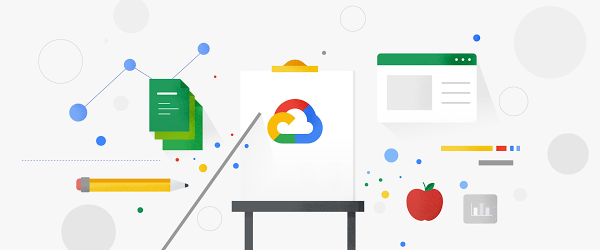Architecture Framework helps customers utilize a set of canonical best practices to design and build workloads on Google Cloud that are secure, reliable, and scalable, while applying cost and performance optimization techniques.
The Architecture Framework is organized into 6 pillars.
System design considerations cover foundational building blocks such Compute, Storage, and Database, expanding best practices to aid your workload design.Operational excellence covers topics to help you build and optimize operational capabilities. Security, privacy, and compliance covers security and compliance considerations that will enhance your security posture. Reliability covers topics that improve the resilience for your workloads.Cost optimization covers techniques and best practices to lower your cloud operation costs. Performance optimization covers tools and techniques to improve your workload efficiency.
Today we are releasing an updated version (2.0) of the framework. The framework is now a dedicated function to help customers adopt best practices from the time workloads are first deployed, and is informed by the collective experience of Google Cloud employees, partners, and customers. Each pillar is broken down into modular sub-topics to help you focus on specific topics such as “Networking from System design” or “High Availability from Reliability,” while describing Google Cloud and open source products to help you design your workloads.
Why use a Framework?
At Google Cloud, we continuously improve our products and features to help our customers unlock their business potential. Publishing a canonical set of best practices helps Googlers, our partners, and Google cloud users to align with the framework and build a success path for running workloads on GCP. As the collective wisdom associated with a newer technology grows over time, we want to reflect key learnings from operating workloads associated with those technologies, so that others can learn from our experience.
We have seen many happy customers who have engaged with Google’s sales, support, and Professional Services teams to conduct an Architecture Framework Workshop, and as a result were able to identify items they could improve in their workloads. We recommend reviewing and aligning workloads with Architecture Framework best practices as an ongoing exercise, an approach that grows in importance as products mature, use cases emerge, useful patterns (and anti-patterns) accumulate, and wisdom is aggregated through Architecture Framework content over time.
What’s Next?
We’re continuing to work to enhance our catalog of best practices to make it easier for customers and partners of Google Cloud to analyze opportunities to optimize your workloads and business functions. Stay tuned for more updates as we publish additional content and widen exposure, awareness, and feedback for Architecture Framework via a forthcoming launch through Google Cloud Communities. We expect future content releases to incorporate an increasing volume of contribution from Google’s partner and customer base in addition to ongoing contributions from Google employees. As always, we welcome your feedback.
Last but not least, initiatives such as the Architecture Framework can only be successful through the collective effort of experts passionate about sharing best practices. We started small with a core group of GCP experts who helped build the initial framework, and quickly were able to build momentum through Google’s internal 20% program, allowing us to tap into expertise spread across different functions and locations within Google.
Learn more about Architecture Framework at cloud.google.com/architecture/framework
Special thank you to the community of Googlers who helped deliver Architecture Framework Version 2.0: Vivek Rau, Pathik Sharma, Daniel Lees, Amber Yadron, Shylaja Nukala, Brandon Bouier, Fernando Rubbo, Jenny Rosewood, Rafee Mohamed, Kumar Dhanagopal, Markus Schneider, Minh “MC” Chung, Rachel Tsao, Sam Moss, Nitin Vashishtha, Pritesh Jani, Ravi Bhatt, Olivia Zhang, Zach Seils, Tabitha Smith, Jhilam Biswas, Mohamed Fawzi, Vijay John-Britto, Alida Wilms, Mike Pope, Arun Reddy, Abhijeet Rajwade, Lucy Carey, Todd Kopriva, Victoria Hurd, Michelle Irvine, Iain Foulds, Olaf Schnapauff, Hamsa Buvaraghan, Maridi Makaraju, Gargi Singh, Nahuel Lofeudo, and Mark Schlagenhauf.
Cloud BlogRead More


